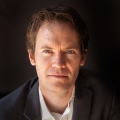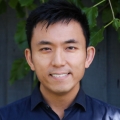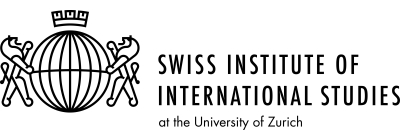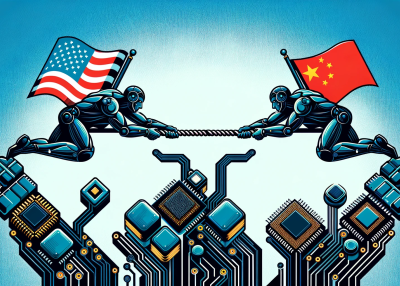Oxford Debate LIVE: Will Asia's Rise Lead to a New World Order?
VIEW EVENT DETAILSA Live Edition of Our Popular Debate Format

VIDEO
Watch Now
There is little to dispute about Asia's rise as a key feature of our time. Already the world's most populous region, Asian countries have steadily gained in economic and political influence on the world stage in recent decades. While in the past this development has been driven heavily by China, the next years will see countries like India, Indonesia, and Vietnam expand their international clout, driven both by expanding economies as well as geopolitical changes.
As the balance of power shifts eastwards, will the world order inevitably change? China has long been ascribed ambitions to remake the global system in its favor, and groupings like the recently expanded BRICS (which includes both China and India) have sometimes been described as heralds of a new world order, as the idea of West – and the collective order it created and dominates – is in decline.
But Asia is far from a monolithic actor, and for all the talk about an "Asian Century", there is arguably no coherent vision from Asia on how the global community should operate. And many countries, especially China, have benefitted in the past from the current system, and might seek to adjust rather than replace it.
This Oxford Debate, held live in Zurich, discusses the motion "Asia’s Rise Will Lead to a New World Order". Arguing for the motion are John Delury and Abigaël Vasselier, arguing against the motion are Julia Ganter and John Lee. Nico Luchsinger, Executive Director at Asia Society Switzerland, will moderate the debate.
About Oxford Debates
The Oxford Debates at Asia Society Switzerland are a format to address 'big' questions that have no one answer or solution but are inviting many conflicting views. Four renowned experts in the field form teams of two, one team arguing for the motion, the other against it.
The Oxford-style format is broken down into four sections: opening remarks, rebuttals, a moderated question-and-answer session, and closing remarks. Before and after the debate the audience is polled whether they agree with the motion or not. The voting breakdown is not shared publicly until the end of the debate. The greater percentage change between the first and second votes determines the debate's winning team.
Disclaimer: Positions presented in the debate do not necessarily represent the speakers' views
Motion: Asia’s Rise Will Lead to a New World Order
Arguing for the motion:

John Delury is a historian and a professor at Yonsei University in Seoul. He is an expert on China's modern history, U.S.-China relations, and Korean Peninsula affairs. John is also a senior fellow at Asia Society and the Pacific Century Institute and a member of the Council of Foreign Relations and the National Committee on North Korea. John contributes regularly to Foreign Affairs, 38 North and Global Asia (where he is an associate managing editor), and his op-eds have appeared in The New York Times and Washington Post. More of his writings can be found in American Foreign Policy Interests, Asian Perspective, Journal of Asian Studies and Late Imperial China. He is often invited to offer his analysis on East Asian affairs with government, think tanks, corporate, and civil society organizations globally.

Abigaël Vasselier is MERICS Director for Policy and European Affairs and heads the Foreign Relations team. Previously, Abigaël worked as Deputy Head of Division for China, Hong Kong, Macao, Taiwan and Mongolia at the European External Action Service (EEAS). Prior to that, Abigaël was a Policy Fellow and Programme Coordinator at the Asia Programme of the European Council on Foreign Relations (ECFR). She has co-authored the book China at the gates: A new power audit of EU-China relations (with François Godement) and several articles related to China's foreign policy and EU-China relations.
Abigaël holds a Master's degree in Asian Studies from SOAS in London. She also graduated in International Relations from Sciences Po Aix and has a Bachelor degree in Chinese language. She studied Chinese at China Foreign Affairs University in Beijing.
Arguing against the motion:

Julia Ganter is Programme Director International Affairs at the German foundation Körber-Stiftung. She heads the Körber Emerging Middle Powers Initiative, is the Editor-in-Chief of The Berlin Pulse, the foundation's annual foreign policy publication and public opinion survey, and coordinates the Asia activities of the foundation's international affairs department. Prior to joining Körber-Stiftung, she coordinated the Task Force for Protecting Europe from Economic Coercion at the European Council on Foreign Relations (ECFR). She gained work experience in the Federal Foreign Office in Berlin, the GIZ in Brasília, the German Institute for Foreign Cultural Relations (ifa), from NGO-work in Brazil and as editor of the monthly magazine Lateinamerika Nachrichten. Julia Ganter holds a Master's degree in International Relations from the Free University of Berlin, Humboldt University Berlin and the University of Potsdam.

John Lee is director of consultancy East West Futures and a researcher at the Leiden Asia Centre. Previously he was a senior analyst at the Mercator Institute for China Studies and worked at the Australian Department of Foreign Affairs and Trade and Department of Defence. John's work focuses on China’s advanced technology industries, especially semiconductors, telecoms and internet of things technologies, as well as China's cyberspace regulation and engagement with global internet governance. He co-leads the China Semiconductor Observatory project funded by the European Union. John's analysis and research has been published by various international media outlets and academic presses.
Event Partners
Impact Hub Zürich: The global community of entrepreneurial people prototyping the future of business. At Impact Hub, you can connect, collaborate, co-work and create great content in an inspiring environment.


Event Details
Kraftwerk
Selnaustrasse 25
8001 Zürich
MAP
